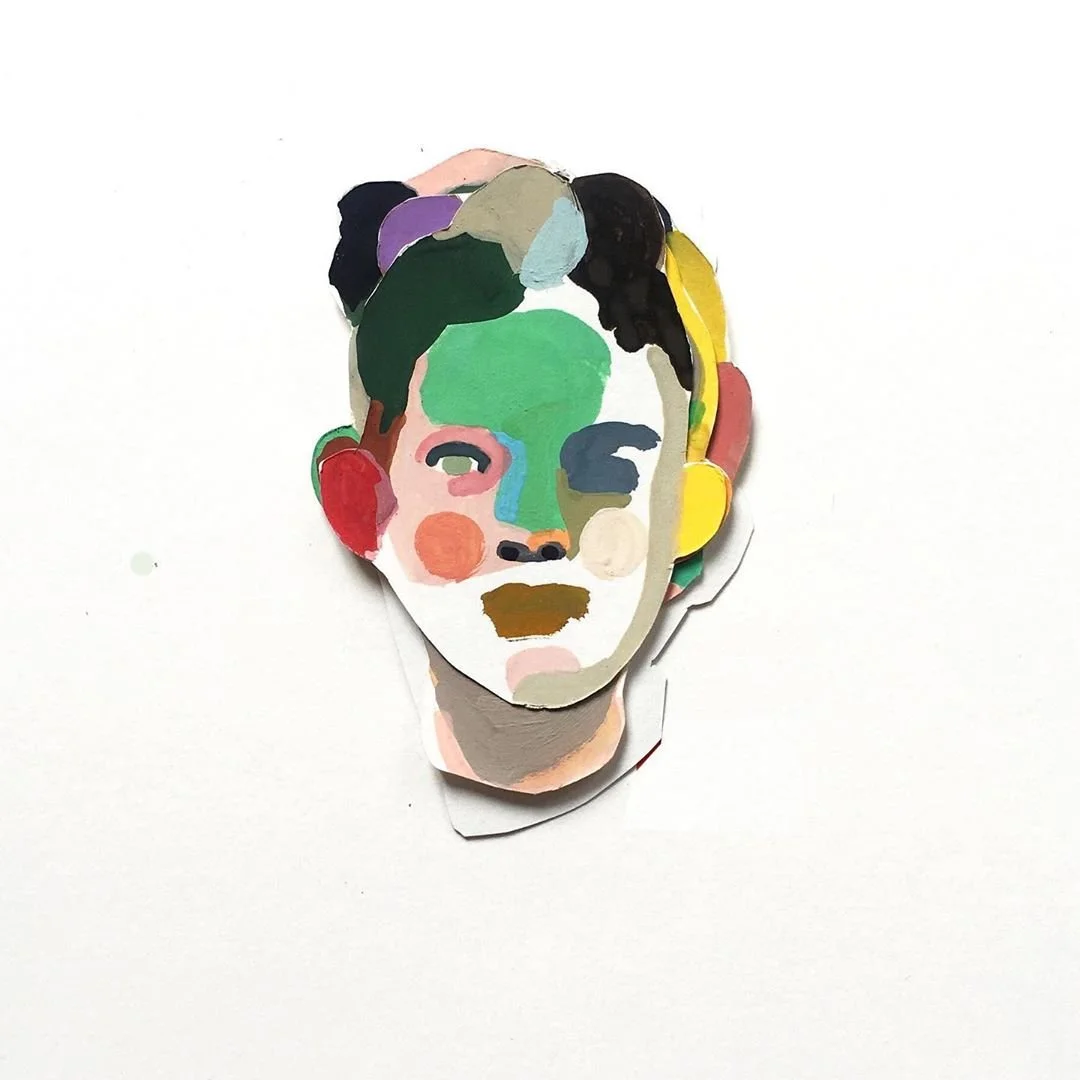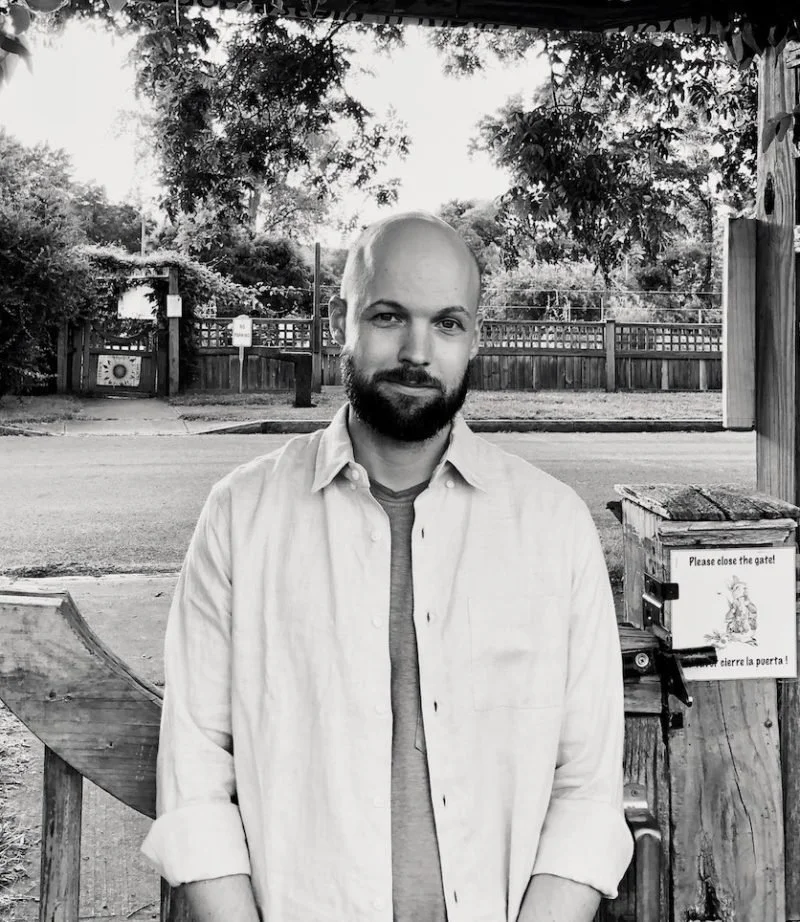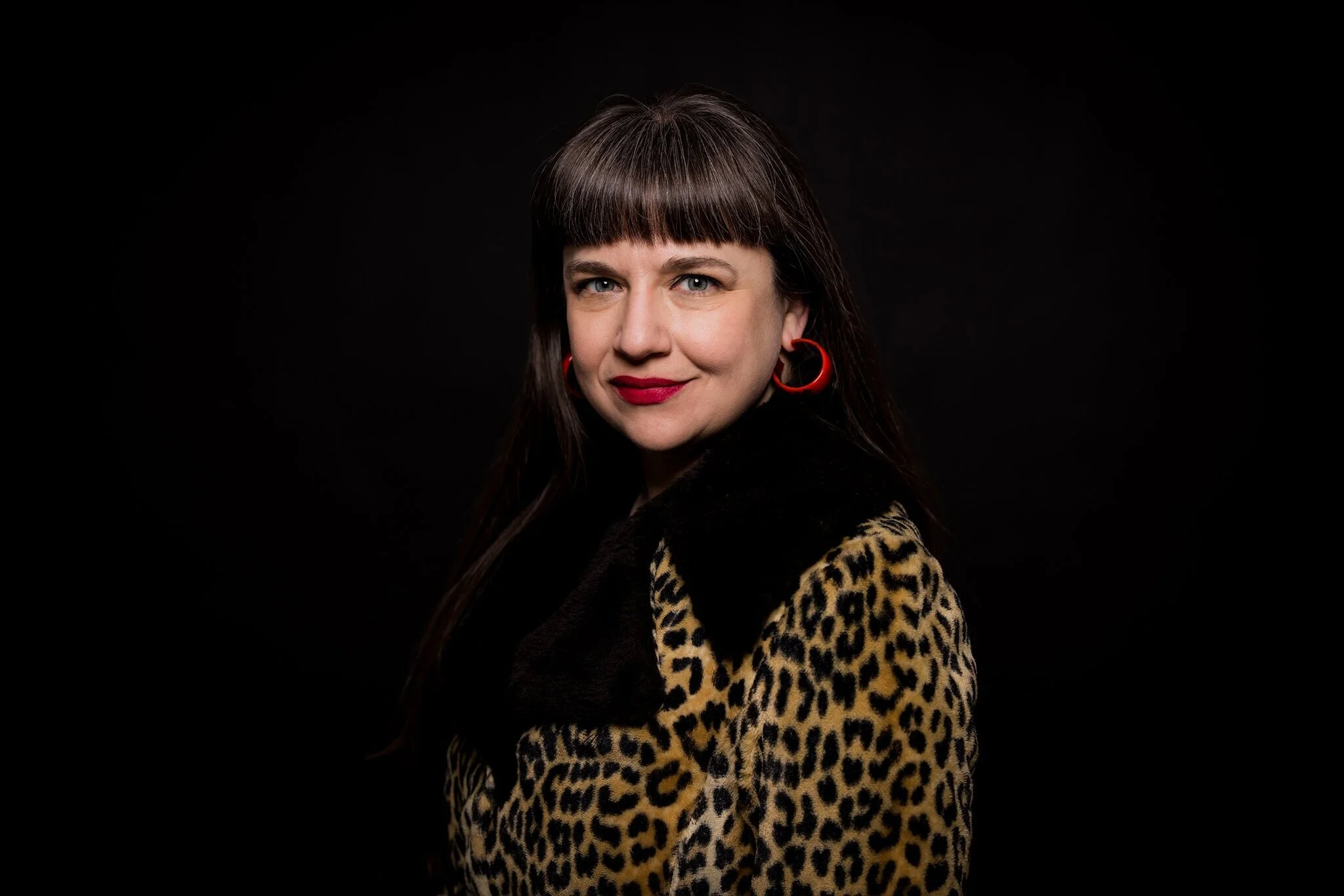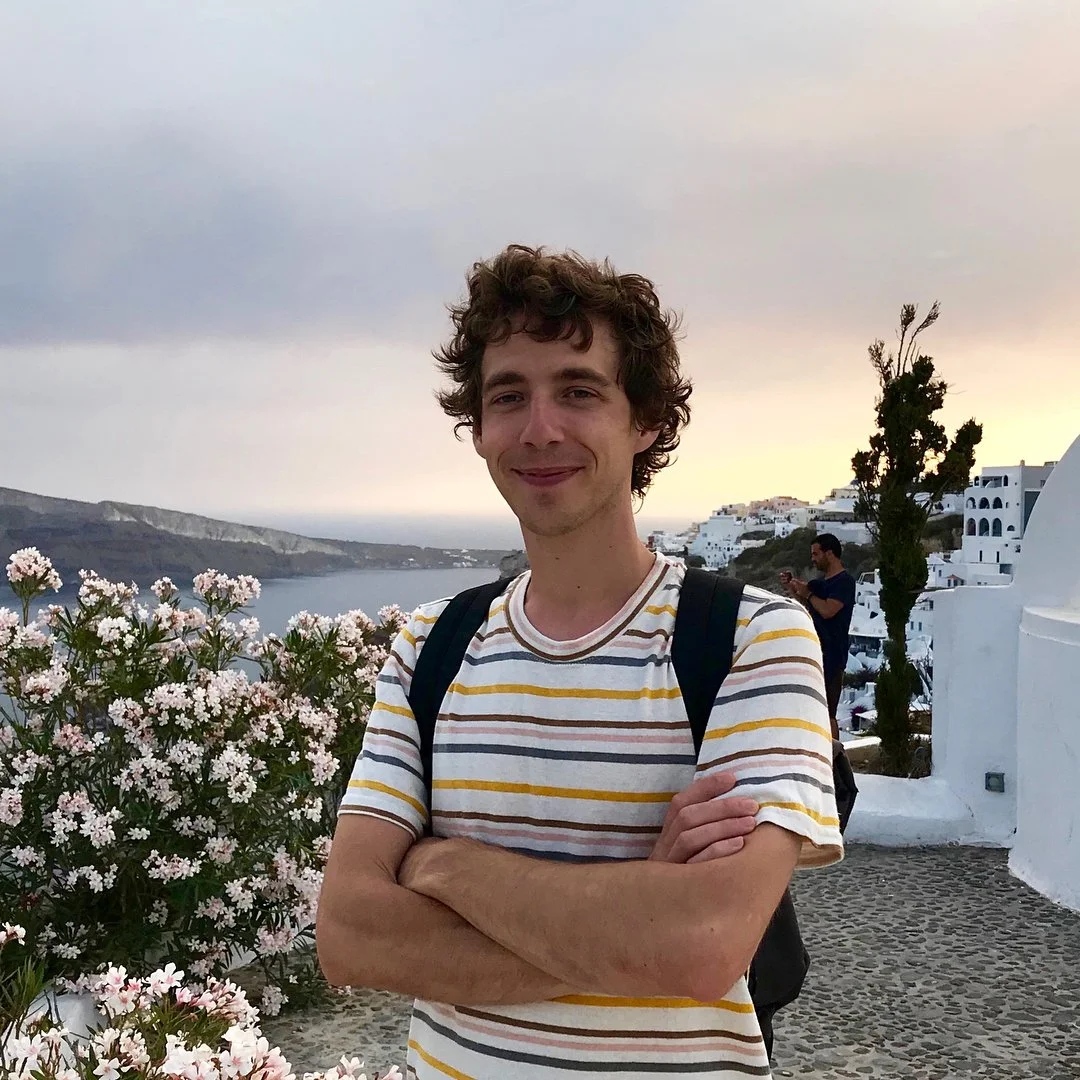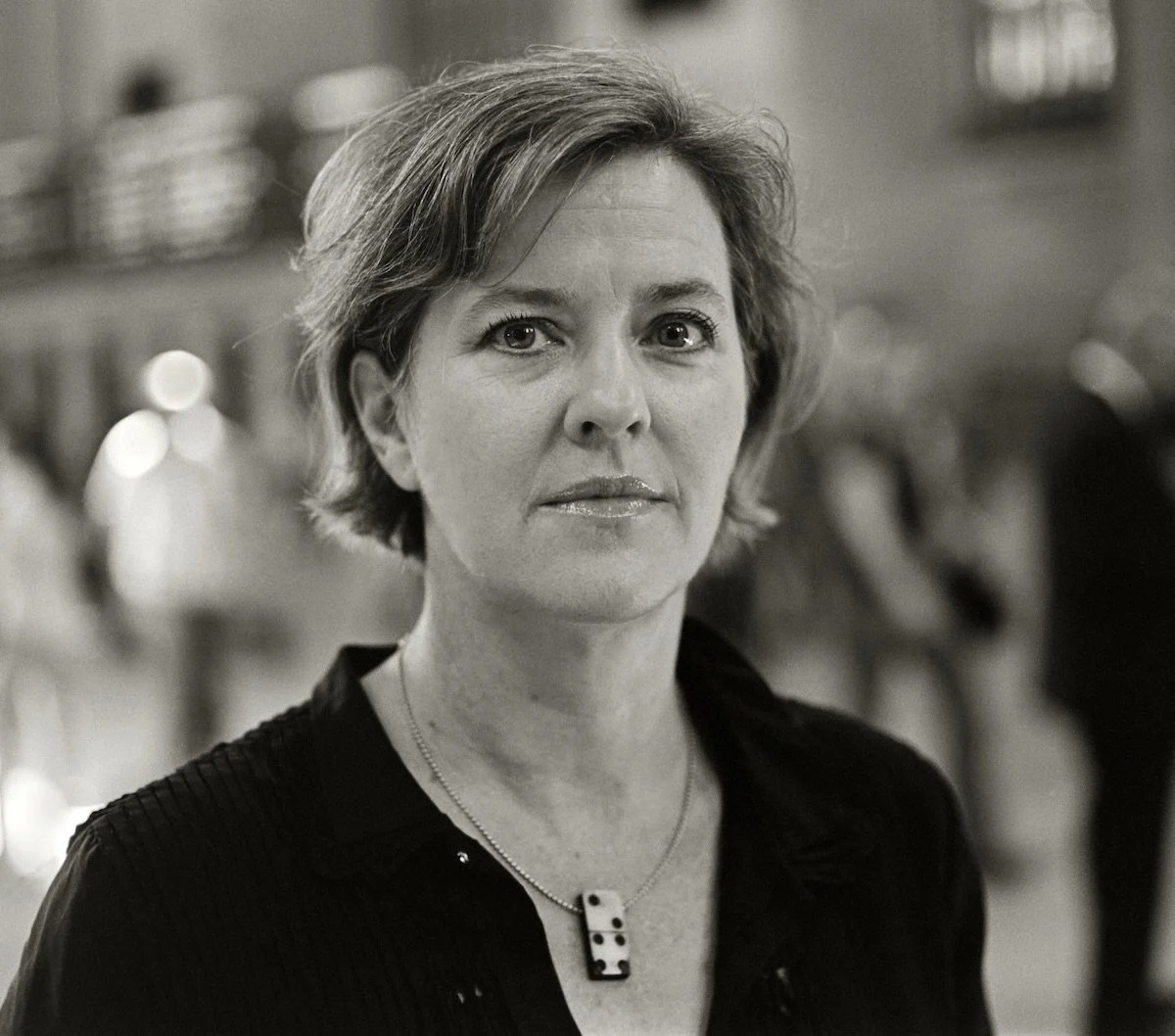Sara Kachelman is a writer and bookmaker living in New Orleans. With an MFA from The School of the Art Institute of Chicago, she has also released the handmade collection Autopsy of the Sewing Machine. This inventive out of print book (only 30 copies were made) is a true work of art. As I stated in my end of the year list of 2021: “prose poems and mosaics pulled from antique sewing machine manuals and thrown into an instructive taxidermy guide book.”
Along with that unique collection, Kachelman’s short stories have been published in several literary journals with more on the way. Her writing feels like ancient fables, lost in time and vocabulary. Part fairytale, part Pleasantville, part gothic, part slapstick. I eat it up. When she’s not printing books for Antenna, she volunteers with young writers at 826 New Orleans and reads for WRBH 88.3 FM Radio for the Blind.
In the interview below, Kachelman talks about borscht, wigs, a writing group, her novel-in-progress, parrots in a radio tower, and much more.
via Autopsy of the Sewing Machine
The poet and collage artist Evan Nicholls first introduced me to your work, in particular Autopsy of the Sewing Machine. Can you talk a bit about the process in writing and assembling this unique collection?
Autopsy came out of a writing program I attended at the Independent Publishing Resource Center (IPRC) in Portland, Oregon in 2019. They offer a year-long certificate program that consists of weekly writing workshops with a local author (I worked with Margaret Malone) and studio instruction in Risograph and letterpress printing, screen printing, and hand binding. At the end of the year, my cohort produced our own books using these techniques. I love the community I found there. The IPRC is a great option for writers who are interested in book arts and want a shorter-term alternative to an MFA.
In its first draft, Autopsy was an essay in fragments about the invention of the needle. But I couldn’t find a foothold in the research. So I did what I always do with my nonfiction drafts: I gave up and wrote a weird story instead.
My maternal grandmother was a sewing machine collector and I inherited many of her machines. Most of them were broken, so I accumulated a collection of 19th century sewing manuals. I was attracted to their idiosyncratic language and the to-infinitives in the tables of contents: “To Thread the Shuttle,” “To Catch the Bobbin,” etc. These phrases became the titles for prose poems. The Smithsonian Library of Historical Trade Literature provided me with digital resources and Victorian-era diagrams with little disembodied hands. I loved the little hands so much (some had lace cuffs) I included them in the manuscript and altered the poems to work with the diagrams.
19th century advertisements claimed that sewing machines could create anything women wanted. They were selling pure witchcraft! I wanted to make their promises real for my character. Already the technical speak read like something out of an erotic science fiction novel. There were all of these unexpected pairings: “feed dogs,” “bed slide,” “finger slit.” I translated that language into mine:
“Pull the needle thread and a small, golden nugget will pop out of the bed slide. Plant the nugget under the mulberry bush in the garden. Water it with the urine of your children. When the crows arrive to mate in the mulberry bush, it is time. Dig up the nugget, and with it you will unearth the sweet-smelling pate of your true love’s head.”
Because the books were hardcover and Coptic bound, I worked very slowly. I made maybe 30 copies. It’s remarkable that one made it all the way to you. (Thank you, Evan!)
Was this your first time working on a book-length project/sequence like this?
It was.
Your short story "Borscht!" threw me through the window! It's such a nice addition to the world of fairytales and fables and folklore. Do you see this story (and your writing in general) in conversation with any particular genre or (given the title) region of writing?
Thanks! I’ve gotten more feedback for “Borscht!” than any of my other stories. It’s always exciting to hear that people have read it, years after it came out in New Delta Review.
I see this story in conversation with Eastern European folktales, or maybe Eastern Europe as imagined by North Americans, like Renee Gladman’s fabled country Ravicka, or the world of Camilla Grudova’s story collection The Doll’s Alphabet.
The surrealist films of Czech animator Jan Švankmajer, the bureaucratic fables of Slawomir Mrozek, and the prose poems of Charles Simic are distant and better cousins of “Borscht!” Add in the absurd hysteria of Russell Edson, mistranslated proverbs, and stolen Shakespeare, and you get lines like “May a rat bite your sex in the night!”
excerpt via Black Warrior Review
Your short story "Socratic Wig" is also the title story for your short story collection. I was trying to track it down online and coming up unsuccessfully. Has it been released yet or is it out of print? Can you talk a bit about Socratic Wig, both the story and the collection?
“Socratic Wig” the story started as a poem I wrote in high school about walking into a wig shop and recognizing my mother’s hair on a Styrofoam head. My mother does have red hair, though it’s thankfully still on her head. There’s a wig shop in Alabama where I grew up called Crazy Carolyn’s Fashions and Southern Wig. Just “wig,” singular. It had a draw on my imagination, though I never dared go inside. I wanted my story to feature a Socratic dialogue with my mother’s wig modeled on the ghost scene in Hamlet, but halfway through revision (which took years) I forgot what a Socratic dialogue was and I still don’t know. I remember the tunnel chase scene was influenced by The Castle of Otranto by Horace Walpole, a lawless Gothic novel in which a man, Conrad, is crushed by a massive, levitating helmet.
Socratic Wig the collection was solicited by a small press in Portland. When we got the first copies printed, pages of text were missing and sentences were cut off in the middle. I asked the publisher to fix the mistakes for the next order, but he refused and destroyed the inventory. I didn’t receive compensation for the copies that he sold, though I did retain my copyright and published the stories in literary journals. That experience was really disappointing, especially after I had worked to promote the book myself. Self-publishing Autopsy a few months later was something of a balm because I handled every stage of production. Now I print books for an art organization in New Orleans called Antenna. My experiences with self- and small press publishing have definitely impacted the care I take when making books for other artists.
You received your MFA at the Art Institute in Chicago. How was that experience for you? And not to be a fanboy, but did you have any courses with Jesse Ball?
When I applied to SAIC, I said I wanted to make “language-based” and “non-narrative” work. But I learned in school that I love narrative. All I want to do is tell a good story. With sentences and a plot. So I wound up writing pretty traditional short stories in an experimental program.
SAIC is genre-less and flexible with electives, so in addition to my writing classes, I studied Eastern European art history and weaving. When the city shut down in March 2020, I left my studio apartment and moved to my parents’ house in Alabama for a few months. I made my own loom and continued online.
Part of my credits at SAIC came from advising hours (modeled after studio visits), so I had one-on-one time with my teachers every week. I worked with Sara Levine and Jesse Ball as much as I could. I had read and loved Jesse’s books and Sara’s hilarious novel Treasure Island!!! before I applied to the program.
I took Jesse’s class on Grimm fairytale variations and another on idleness (the title was misleading.) He uses the “asking method” in workshop, in which the class asks the writer non-evaluative questions about the submitted work, fielded by a moderator. There is also an appointed scribe who writes down all of the questions and none of the answers. Jesse has a book published by Pioneer Works called Notes on my Dunce Cap that collects his syllabi and pedagogy. It’s playful and bizarre, like his classes.
via Autopsy of the Sewing Machine
You're currently in New Orleans where you volunteer with young writers and read for the blind. How did you find yourself involved in these two organizations/sectors?
I struggled to find a job when I moved to New Orleans, so I volunteered to meet people and give myself a routine. I’d had a great volunteer experience in Chicago at the Weaving Mill, a textile studio that works with adults with developmental disabilities. I loved going there every week. I wanted to find something like that here.
I read about WRBH 88.3FM Reading Radio for the Blind in a library book when I was still in Chicago. I’d checked out Unfathomable City: A New Orleans Atlas edited by Rebecca Solnit and filmmaker Rebecca Snedeker, which gave me context for a city I hardly knew. WRBH has been around since 1982 and it’s the nation’s only full-time FM reading radio service. I auditioned soon after I arrived and started recording at the station every Friday morning. It’s in a beautiful old house. Green parrots nest in the radio tower. Usually I read about local events, but last week they handed me a romance novel by Danielle Steel. I hope they keep me on that segment. I’m told it’s their most popular by far.
I found out about 826 New Orleans while searching for local literacy nonprofits. I work with 1-5 grade writers. Every time I show up, I’m reminded of all the decisions that go into each sentence. Finding the words to describe how we feel, putting them in order, and spelling them in a way other people can understand? Nearly impossible. Every student’s story convinces me that writing is still worth the work.
Along with poetry and short stories, have you worked on anything larger like a novel or a screenplay? In other words, what are you currently working on?
I’m in the third draft of a novel set in an 18th century fort. Like “Borscht!” it is full of vicious women, root vegetables, and squalor.
Outside of your own art and writing, what albums/artists/plays/films have captivated you in recent months?
I’ve been listening to Patrick Cowley’s album Afternooners. It’s a collection of synth music Cowley recorded between 1979 and 1982 for use in gay porn films. Cowley was part of the Hi-NRG movement, along with Sylvester, Divine, and other disco stars. Dark Entries Editions recently published Cowley’s sex diary. It was my favorite Christmas present. I recommend it if you’re a fan of Kathy Acker and the New Narrative writers.
Another thing. My partner recently showed me the 2003 documentary Off the Charts: The Song-Poem Story. It’s about the mysterious song-poem industry, in which people mail in their poems to be set to music by a recording studio. For a (large) fee. A humbling, strange, surprising story.
excerpt via New Delta Review
If you can, provide a photo of your workspace or describe with words. What are some essentials while you create?
I live a short walk away from a very elaborate public library, a dead family’s mansion with a tile roof. I usually work in the little solarium there. It’s got a metal chandelier and an ugly tile floor. Sometimes a person will read a newspaper very aggressively on the other end of my table. Today a man walked in and announced that he had purchased the library for 25 billion dollars and ordered us to get out. The librarians taunted him until he left.
For this ongoing author interview series, I'm asking for everyone to present a writing prompt. It can be as abstract or as concrete as you choose.
You’re the only literary translator working in a little-known language. But really you’re a guerilla memoirist. An entire generation of schoolchildren grow up to love a classic novel you wrote yourself into, until SOMEONE catches on.
Do you have any advice for writers trying to find their way? Either through higher education, publications, volunteering, etc.
Try to find a community wherever you can. Reach out to other writers whose work you love. And make a website with a form so other writers can write to you!
Any final thoughts / words of wisdom / shout-outs? Thank you for taking the time!
I’ll plug my writing group in New Orleans, Third Lantern Lit, which has provided me with friends, encouragement, and baffling prompts since I moved to town. NOLA writers, hang out with us @thirdlanternlit.
Thank you for this interview, Ben! Everyone buy Ben’s book PICKPOCKET THE BIG TOP!















